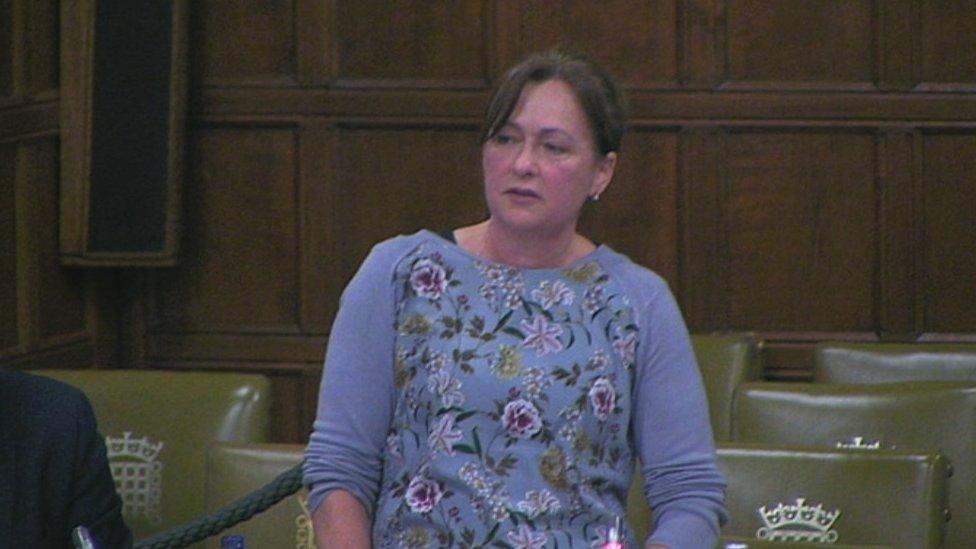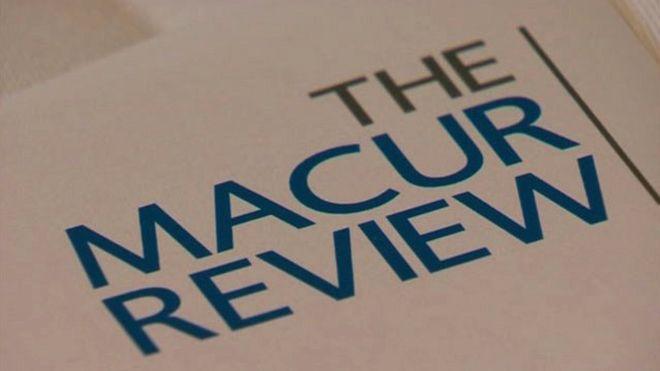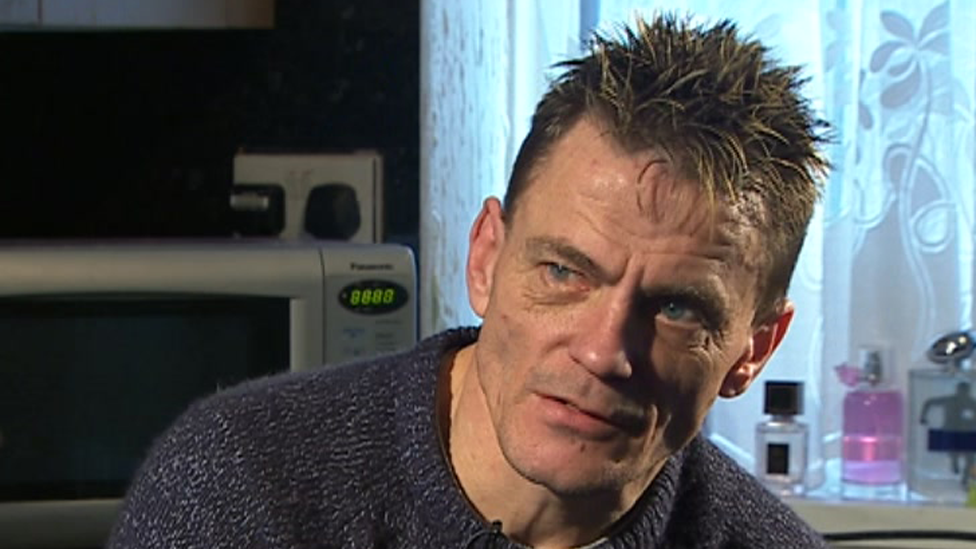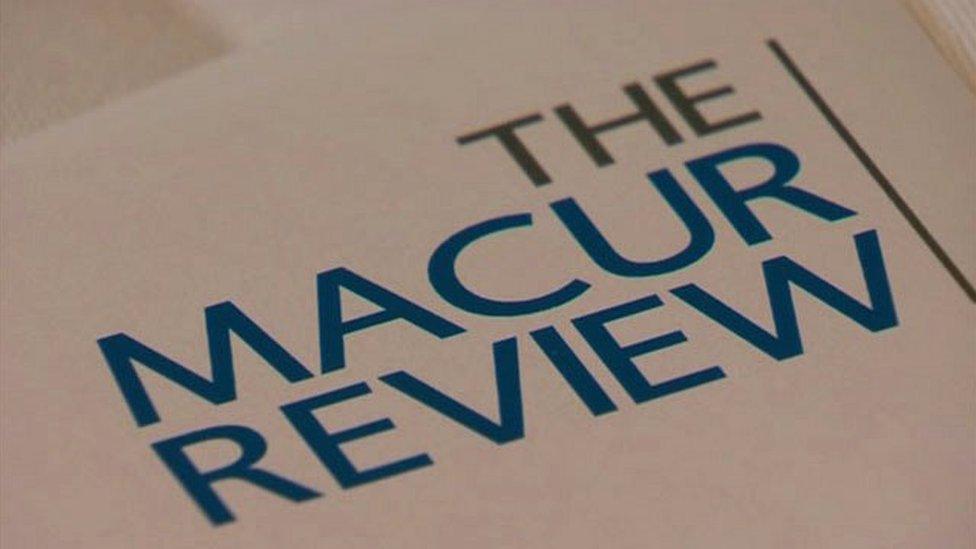Macur Review adds 'virtually nothing' due to redactions, MP says
- Published

Liz Saville Roberts said victims had hoped the report would dispel "nagging doubts and conspiracy theories"
A review of an inquiry into child sex abuse at former north Wales children's homes added "virtually nothing" to public understanding of how the state failed victims, an MP has said.
The Macur Review, published on Thursday, backed the 2000 Waterhouse inquiry, which found "no evidence" of abuse by establishment figures.
On Tuesday, Plaid Cymru MP Liz Saville Roberts criticized its 600 redactions.
Wales Office Minister Guto Bebb said they were necessary.
Court of Appeal judge, Lady Justice Macur, said in her review there was "no reason" to undermine the findings of Sir Ronald Waterhouse.
Parts of her review were redacted due to possible future prosecutions and to prevent potentially innocent people being implicated.
Addressing MPs in Parliament, Ms Saville Roberts said the review had offered hope to victims of abuse.
'Alarming'
However, the MP for Dwyfor Meirionnydd said the number of redactions meant it offered "virtually nothing" to any understanding of the state's failings in north Wales.
"Especially alarming, possibly if not more so, are the numerous and very serious cases of missing or destroyed evidence at several different points during the various inquiries," she added.
Labour MP Ian Lucas said it had been a difficult issue for his Wrexham constituency and there had been "great hopes" for the Macur Review.
Victim Steve Messham said the scope of the original inquiry should have been wider
"The reaction within Wrexham has been one of huge disappointment and distress," he said.
Mr Lucas called for a full day's debate on the report.
"It's very important that everyone out there understands that the redactions in this report are made by the government, not by the judge," he added.
But Mr Bebb said the redactions were needed to ensure ongoing police investigations were not compromised.
'Integrity of report'
"We had an obligation to ensure that nothing printed and published within this report could in any way, shape, or form damaged any further criminal proceedings," he said.
In addition, Mr Bebb said there was a legal requirement to ensure the identities of those who had suffered abuse be protected and an obligation to not to point the finger at people who might be "completely and utterly innocent".
"They [the redactions] were undertaken in order to ensure the integrity of the report," he added.
- Published17 March 2016

- Published17 March 2016

- Published17 March 2016

- Published11 December 2015
